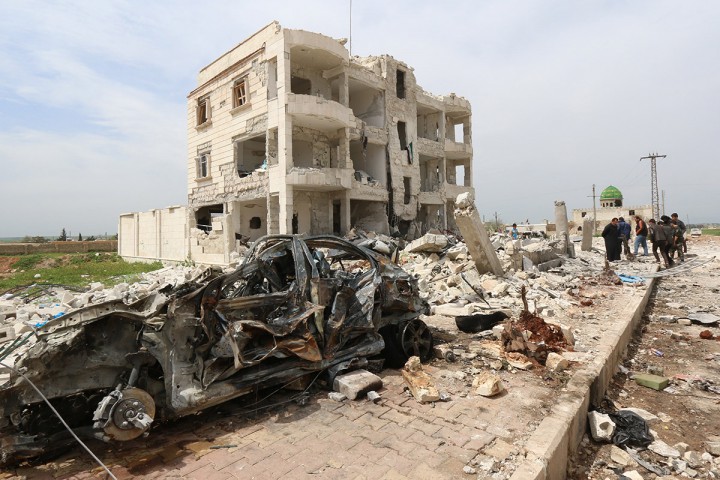THE HAGUE, Netherlands – A source at the Organization for the Prohibition of Chemical Weapons said Thursday that inspectors from the international watchdog have found evidence that mustard gas was used during fighting between insurgent groups in the Syrian town of Marea in August.

The official, who spoke on condition of anonymity because a report on the findings had not yet been published, said OPCW inspectors discovered “evidence that mustard (gas) was indeed used there.”
The OPCW team was investigating allegations that the Islamic State used chemical weapons in Marea, but has not attributed blame for the use of mustard gas. The findings will now be sent to the United Nations.
WATCH: Canada poised to withdraw from mission in Syria
A U.S. official, who spoke on condition of anonymity because he was not authorized to be quoted, confirmed that there is evidence a blistering agent was used at Marea on Aug. 21.
Sulfur mustard, also known as mustard gas, is an outlawed chemical weapon that attacks the skin, eyes, lungs and other internal organs of victims.
READ MORE: Kapyong the perfect temporary home for refugees: Military expert
Syria’s declared 1,300-ton chemical weapons stockpile, which was destroyed after President Bashar Assad’s government joined the OPCW in 2013, included sulfur mustard. It is not clear how insurgents came to possess the chemical weapon.
Doctors Without Borders said in late August that four patients exhibiting symptoms of exposure to chemical agents were treated at a hospital run by the international medical organization in northern Syria on Aug. 21. It said the parents and their two daughters arrived at a hospital run by the group one hour after the attack, suffering from respiratory difficulties, inflamed skin, red eyes, and conjunctivitis and their conditions worsened later.



Comments